What Is Humility & Why Is It Important? (Incl. Examples)
 At first sight, the ancient virtue of humility is not a particularly appealing one.
At first sight, the ancient virtue of humility is not a particularly appealing one.
Deriving from the word humus (earth), it appears to clash with our current valuation of self-worth and self-realization.
But humility has nothing to do with meekness or weakness. And neither does it mean being self-effacing or submissive. Humility is an attitude of spiritual modesty that comes from understanding our place in the larger order of things. It entails not taking our desires, successes, or failings too seriously.
In the past decade in particular, psychologists have rediscovered the importance of humility. They have established fascinating links between humility and our ability to learn and be effective leaders, and our readiness to engage in prosocial behavior.
Adopting a more humble mindset increases our overall psychological wellbeing and ensures our social functioning. Last but not least, humility is a perfect antidote to the self-fixated spirit of our age.
Before you continue, we thought you might like to download our three Strengths Exercises for free. These detailed, science-based exercises will help you or your clients realize your unique potential and create a life that feels energized and authentic.
This Article Contains:
- The History of Humility
- What Is Humility in Psychology?
- Humility as a Character Strength
- Why Is Humility Important?
- 5 Real-Life Examples
- How to Practice Humility
- 5 Exercises for Fostering Humility
- 4 Tips for Raising a Humble Kid
- Techniques for Humble Leadership and Workplace
- The Importance of Humility in Relationships
- 2 Books on the Topic
- A Take-Home Message
- References
The History of Humility
Humility is a core value in many ancient ethical and theological frameworks. The Confucian form of humility, for example, is profoundly other oriented in spirit, consistently valuing the social good over the satisfaction of our individual aspirations. In this ancient Chinese form, humility can significantly enhance social cohesion and our sense of belonging.
The Greek philosopher Socrates held that wisdom is, above all, knowing what we don’t know. He taught an intellectual form of humility that freely acknowledges the gaps in our knowledge and that humbly seeks to address our blind spots.
Aristotle understood humility as a moral virtue, sandwiched between the vices of arrogance and moral weakness. Like Socrates, he believed that humility must include accurate self-knowledge and a generous acknowledgment of the qualities of others that avoids distortion and extremes.
An accurate understanding of our strengths and weaknesses is still a core feature of current definitions of humility.
Christian humility is linked to self-abnegation, shame, and sin and may therefore not be to everyone’s taste. However, the ancient theologians can still help us to avoid arrogance and pretentiousness. They remind us that we are members of a species that is far from perfect and urge us to be mindful of the limited role we each have to play in the fate of humanity as a whole.
Through the centuries, the importance of humility as a moral character virtue has faded. However, psychological studies of humility have surged in the last two decades (Worthington, Davis, & Hook, 2017). This renewed interest in humility is, in no small part, a counter-reaction to what the authors of The Narcissism Epidemic, Jean Twenge and W. Keith Campbell (2009), have described as our “age of entitlement.”
Today, self-realization and enhancing our self-worth are our highest aspirations. Precisely because it provides an antidote to many worrying tendencies of our age, such as arrogance, greed, and self-centeredness (all of which also have devastating consequences for our democracies and our planet), humility is experiencing a much-needed revival.
What Is Humility in Psychology?

Capturing our other-orientation, it is closely related to modesty and fairness, but also our interest in wealth and other signs of status and our inclination toward self-promotion. Crucially, it also involves seeing ourselves accurately – not thinking of ourselves more highly (or, for that matter, lowly) than is appropriate.
Worthington et al. (2017) understand humility as made up of three parts:
- Accurate self-perception
- Modest self-portrayal
- Other-oriented relational stance
They note that the recent growth in humility-focused studies coincides with the rise of positive psychology and frustration with the limitations of purely individualistic virtues. Alongside compassion, forgiveness, altruism, gratitude, and empathy, humility belongs to “a cluster of virtues that bind society together” (Worthington et al., 2017).
Worthington et al. (2017) further divide humility into general humility and more specific kinds of humility. These include intellectual humility, relating to an openness about our views, beliefs, and opinions; and cultural humility, an ability to acknowledge and learn from the achievements of other cultures (Hazlett, 2012; Davis et al., 2015).
Other sub-types of humility are political and spiritual humility.
While other-orientedness is a core interpersonal feature of humility, Tangney (2009) has identified six intrapersonal aspects of humility:
- A willingness to see ourselves truthfully
- An accurate perception of our place in the world
- An ability to acknowledge our mistakes and limitations
- Openness
- Low self-focus
- An appreciation of the value of all things
Hill and Laney (2016), finally, understand humility as involving a quiet ego (see also Kesebir, 2014).
Choosing humility in a self-centered age – Quincy Mix
Humility as a Character Strength
We can also understand humility as a character strength. As such, it is an essential component of moral character that is manifested in modesty, being empathetic, acknowledging and respecting others at a deeper level, and accurately understanding as well as owning our limitations (Harvey & Pauwels, 2004).
As a character strength, humility can be viewed as the opposite of pride, arrogance, and an inflated sense of our importance and talents. It is based on a fundamentally caring and compassionate attitude toward others.
Finally, we may also think of humility as a specific mindset. After all, it is a crucial aspect of what Carol Dweck (2006) has described as the “growth mindset.”
In Dweck’s framework, humility entails not just admitting our shortcomings, but actively seeking to overcome them. It is about a general readiness to learn best practices from others and learn from our failures (see also Syed, 2015).
Humility is, therefore, intricately related to learning and teachability – a way of being that embraces constant self-correction and self-improvement.
Why Is Humility Important?
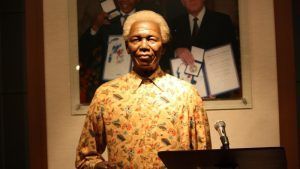
A humble mindset has significant positive effects on our cognitive, interpersonal, and decision-making skills. Humility is directly related to our ability and willingness to learn. Humble people are better learners and problem solvers.
Humble students who are genuinely open to feedback often overtake their naturally more talented peers who think so highly of their own abilities that they reject all advice. Some studies have found that humility is more important as a predictive performance indicator than IQ (Owens, Johnson, & Mitchell, 2013; Krumrei-Manusco, Haggard, LaBouff, & Rowatt, 2019).
Humility in our leaders, moreover, fosters trust, engagement, creative strategic thinking, and generally boosts performance (Rego et al., 2017; Ou, Waldman, & Peterson, 2020; Cojuharenco & Karelaia, 2020). Humility is also related to a general increase in positive emotions. Moreover, humility fosters self-forgiveness (Onody et al., 2020).
Besides, there are indications that humility strengthens various social functions and bonds. As a consequence of experiencing less stress and fewer negative experiences with others, humility might be related not just to better mental health, but also better physical health (Worthington et al., 2017, p. 7).
Last but not least, a lack of cultural humility is associated with xenophobia, the fear and hatred of foreigners. Humility, by contrast, is associated with xenophilia, an attraction to foreign cultures.
Those of us who lack cultural humility are more prone to make assumptions about others, feel superior to them, and dramatically overvalue our knowledge and talents in comparison to others (Hook, Davis, Owen, Worthington, & Utsey, 2013; Barbarino & Stürmer, 2016).
5 Real-Life Examples
A famous trio of truly humble people are Gandhi, Nelson Mandela, and Mother Teresa. All of them heroically dedicated their energies and time to serving their ideals and tirelessly working to improve the living conditions for other people.
Yet they remained modest and unpretentious about their astounding achievements and never tied them to their own personalities. They humbly served not their egos, but instead a greater external cause.
We can see many examples of personalities who lack humility by turning to the world of fiction and television. For instance, you might remember the spoiled and over-indulged Veruca Salt from the famous tale of Charlie and The Chocolate Factory.
The child of affluent parents, Salt stands in stark contrast to the story’s protagonist, believing she is without fault and entitled to anything she wants. This lack of humility comes at a price when she is whisked away down a garbage chute that judges her to be a “bad egg.”
Another example is Joffrey Baratheon from Game of Thrones. The character of Joffrey is known for his narcissistic entitlement, vastly inflated sense of his talents, and desire to dominate–all traits negatively correlated with humility (Worthington et al., 2017, p. 7).
Joffrey shows little sympathy or concern for other characters throughout the story, including his own wife, Sansa, whom he treats with severe cruelty. It is little wonder audiences around the world celebrated when he was poisoned and died in Season 4, putting an end to his reign of tyranny.
How to Practice Humility
We need to begin by developing an accurate understanding of our strengths and weaknesses.
Then we must own our imperfections. When we do, we no longer have to waste our energy hiding them from others, but can instead seek to learn to live with them productively or even to overcome them.
Paradoxically, a stubbornly low opinion of ourselves is also in contradiction to a humble view of ourselves. Extremely low self-esteem, just as a narcissistic overvaluation of our talents, lacks accuracy. It is just an inverted form of self-obsession, another way of fixating on ourselves rather than directing our attention toward others.
Although we are the subject in our world, we must remember that we are an object in everybody else’s. We are not the center of the universe. This includes adjusting our perspective. Our woes and desires become ever more insignificant the more we step back from them and consider the bigger picture. Our time on this planet is limited. Our works and achievements are transient.
We are all parts of structures that are larger than ourselves – couples, families, communities, nations, the organizations for which we work, the human species. We should never forget the many teams of which we are a part – small and large. Sometimes, it is apt to privilege the needs of our teams over our individual desires.
We must stay curious and open to learning. We can learn from anyone and everything at all times. We can learn from friends and family, our children, and people who master specific skills.
We have much to learn from other cultures and our ancestors. We can learn precious lessons from animals and even plants.
Humor is a powerful tool. We can all benefit from laughing more about ourselves and our imperfections.
3 Exercises for Fostering Humility
Exercises that hone gratitude and appreciation can boost a humble state of mind. A great starting point is PositivePsychology.com’s Expressing Gratitude To Others worksheet. It invites us to value our important relationships with others. It encourages us to think about the people who have influenced us most positively in our lives, truly appreciate their contribution, and demonstrate our gratitude.
Another classic exercise is the Gratitude Journal exercise. This exercise asks us to write down the things and people that we are thankful for, which triggers reflection on them at the end of each day.
Gratitude Gifts is an activity for children that aims to help them generate a more grateful mindset.
Finally, we have much to learn from the Romantics. They held nature in the highest esteem. They knew it as an awe-inspiring force, a manifestation of the sublime that reminds us of our relative insignificance in the greater scheme of things.
Nature has curative powers. It can put us back in our place. We can experience a powerfully self-importance-correcting sense of awe by looking out to sea, peering down the edges of dramatic cliffs, touching the ancient trunks of towering trees, and viewing waterfalls, fast-flowing rivers, and still, deep ponds.
We can feel humbled when we are reminded of the force of the elements – battered by strong winds, drenched by the heavens – or when we see zigzagging lightning light up the night sky.
4 Tips for Raising a Humble Kid
Children learn by copying.
The most effective way to teach children humility is by modeling it ourselves. We can show them what humility looks like in action daily.
While seeking to foster healthy self-esteem, we should not over-inflate children’s sense of importance. And nor should we twist their view of their own talents. This is a very tricky balance to strike.
We can approximate this ideal by trying to praise effort over results and by fostering a growth mindset (Dweck, 2006). This includes honing children’s ability to learn from failure and teaching them to see failure as a natural part of any meaningful learning process.
We can show children other ways of seeing the world and thinking about things. Our best tools are books, films, and works of art. By exposing them to radically different world views and talking about the discrepancies they notice with an open mind, we can alert them to the fact that their way of viewing the world is not the only one. And nor is ours.
We, too, can learn much from children in turn and should tell them so when we do.
Finally, gratitude exercises work with children, too. We can, for starters, simply ask them to name one thing for which they have been particularly grateful today.
Techniques for Humble Leadership and Workplace
Jim Collins, in Good to Great (2001), has demonstrated that the most outstanding leaders are also the most humble. The best leaders combine professional will with personal humility. They are often “self-effacing, quiet, reserved, even shy” – always privileging the institutions they serve over their egos (Collins, 2001, p. 12).
These leaders believe in human development. They do not crave credit, nor do they constantly need to show how great they are or undermine others to feel powerful. They are instead relentlessly trying to improve and learn from their failures. By modeling humility, they create a humble working culture in their organizations.
Bradley Owens says that humble leaders are essentially self-transcendent. Humble leaders “have successfully tempered or tamed the ego and embraced a leadership perspective that seeks to elevate everyone” (Aten, 2019). They are teachable, eager to learn, willing to see themselves accurately, and able to praise those around them. They foster in their workforce hope, efficacy, resilience, and optimism (Owens, Yam, Bednar, Mao, & Hart, 2019).
Humble leaders, moreover “are more likely to see failure as just a part of the developmental process. Since humble leaders don’t try to keep up appearances or power postures, it is less distressing and thus easier to recover when things don’t go well” (Aten, 2019).
The Importance of Humility in Relationships

Worthington et al. (2017) define relational humility as our “ability and capacity to prioritize the needs of the relationship. It requires being sympathetic to the other person in the relationship and seeking to consider his or her fundamental needs,” as well as “shaping our behavior to elevate the other person’s agenda.”
Humility in relationships can be transformational when we move beyond our selfish preferences and consider not just our partner’s wellbeing, but the wellbeing of the partnership. Relationship humility builds trust, commitment, and persistence (Worthington et al., 2017, p. 12).
2 Books On The Topic
Find two suggestions for in-deth reflection on the topic of humility.
The Handbook of Humility: Theory, Research, and Applications
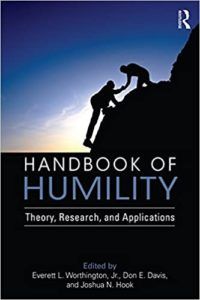
It features a very readable introduction and epilogue that provide a fine overview of the growing field of humility research and its main findings so far, as well as numerous chapters on specific features of and perspectives on humility.
Available on Amazon.
The Routledge Handbook of Philosophy of Humility
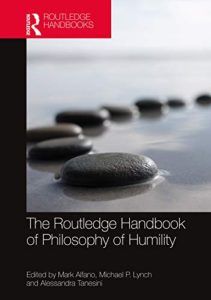
It covers theories, ethics, psychology, and politics of humility, as well as humility in religious thought.
Available on Amazon.
A Take-Home Message
The ancient virtue of humility is experiencing a long-overdue revival. Not only has humility research proliferated in the past years, but there is a mounting body of evidence that demonstrates just how vital humility is for all of us. It is closely correlated with learning, outstanding leadership, various prosocial behaviors, and our ability to forge deeper bonds with others.
Humility has the potential to be a panacea for many of our most pressing political problems, as well as for global environmental challenges. Last but by no means least, humility is also merely a highly likable trait. We are much more attracted to those who are not self-centered, arrogant, pretentious, or greedy. These tendencies have become all too common in recent decades, but the tide is turning.
We hope you enjoyed reading this article. Don’t forget to download our three Strengths Exercises for free.
- Alfano, M., Lynch, M. P., & Tanesini, A. (Eds.) (2020). The Routledge handbook of philosophy of humility. New York, NY: Routledge.
- Aten, J. D. (2019, February 26) How humble leaders foster resilience: An interview with Dr. Bradley Owens on the value of humility. Psychology Today. Retrieved from https://www.psychologytoday.com/us/blog/hope-resilience/201902/how-humble-leaders-foster-resilience
- Barbarino, M. L., & Stürmer, S. (2016). Different origins of xenophile and xenophobic orientations in human personality structure: A theoretical perspective and some preliminary findings. Journal of Social Issues, 72, 432–449.
- Cojuharenco, I., & Karelaia, N. (2020). When leaders ask questions: Can humility premiums buffer the effects of competence penalties? Organizational Behavior and Human Decision Processes, 156, 113–134.
- Collins, J. (2001). Good to great: Why some companies make the leap—and others don’t. Random House Business.
- Davis, D., Rice, K., McElroy-Heltzel, S., Deblaere, C., Choe, E., Van Tongeren, D., & Hook, J. (2015). Distinguishing intellectual humility and general humility. The Journal of Positive Psychology, 11, 1–10.
- Dweck, C. S. (2006). Mindset: Changing the way you think to fulfill your potential. London, UK: Robinson.
- Harvey, J. H., & Pauwels, B. G. (2004). Modesty, humility, character strength, and positive psychology. Journal of Social and Clinical Psychology, 23, 620–623.
- Hazlett, A. (2012). Higher-order epistemic attitudes and intellectual humility. Episteme, 9, 205–223.
- Hill, P., & Laney, E. K. (2016). Beyond self-interest: Humility and the quieted self, In K. W. Brown & M. R. Leary (Eds.) The Oxford handbook of hypo-egoic phenomena. Oxford, UK: Oxford University Press.
- Hook, J. N., Davis, D. E., Owen, J., Worthington, E. L., & Utsey, S. O. (2013). Cultural humility: Measuring openness to culturally diverse clients. Journal of Counseling Psychology, 60(3), 353–366.
- Kesebir, P. (2014). A quiet ego quiets death anxiety: Humility as an existential anxiety buffer. Journal of Personality and Social Psychology, 106(4), 610–623.
- Krumrei-Mancuso, E. J., Haggard, M. C., LaBouff, J. P., & Rowatt, W. C. (2019). Links between intellectual humility and acquiring knowledge. The Journal of Positive Psychology, 155–170.
- Onody, A. P., Woodyatt, L., Wenzel, M., Cibich, M., Sheldon, A., & Cornish, M. A. (2020). Humility and its relationship to self-condemnation, defensiveness and self-forgiveness following interpersonal transgressions. Journal of Psychology and Theology, 48(2), 118–130.
- Ou, A. Y., Waldman, D. A., & Peterson, S. J. (2018). Do humble CEOs matter? An examination of CEO humility and firm outcomes. Journal of Management, 44(3), 1147–1173.
- Owens, B. P., Yam, K. C., Bednar, J. S., Mao, J., & Hart, D. W. (2019). The impact of leader moral humility on follower moral self-efficacy and behavior. The Journal of Applied Psychology, 104(1), 146–163.
- Owens B. P., Johnson, M. D., & Mitchell, T. R. (2013). Expressed humility in organizations: Implications for performance, teams, and leadership. Organization Science, 24(5), 1517–1538.
- Rego, A., Owens, B., Leal, S., Melo, A., Cunha, M., Gonçalves, L., & Ribeiro, P. (2017). How leader humility helps teams to be humbler, psychologically stronger, and more effective: A moderated mediation model. The Leadership Quarterly, 28, 639–658.
- Robson, D. (2020, June 1). Is this the secret of smart leadership? BBC. Retrieved June 3, 2020, from https://www.bbc.com/worklife/article/20200528-is-this-the-secret-of-smart-leadership
- Syed, M. (2015). Black box thinking: Marginal gains and the secrets of high performance. London, UK: John Murray.
- Tangney, J. P. (2009). Humility, In S. J. Lopez & C. R. Snyder. (Eds.) Handbook of positive psychology (pp. 411–419). Oxford, UK: Oxford University Press,
- Twenge, J. M., and Campbell, W. K. (2009). The narcissism epidemic: Living in the age of entitlement. New York and London: Atria.
- Worthington, Jr., E., Davis, D., & Hook, J. (Eds.) (2017). Handbook of humility: Theory, research, and applications. New York, NY: Routledge.
Let us know your thoughts
Read other articles by their category
- Body & Brain (49)
- Coaching & Application (57)
- Compassion (26)
- Counseling (51)
- Emotional Intelligence (24)
- Gratitude (18)
- Grief & Bereavement (21)
- Happiness & SWB (40)
- Meaning & Values (26)
- Meditation (20)
- Mindfulness (45)
- Motivation & Goals (45)
- Optimism & Mindset (34)
- Positive CBT (28)
- Positive Communication (20)
- Positive Education (47)
- Positive Emotions (32)
- Positive Leadership (18)
- Positive Parenting (4)
- Positive Psychology (33)
- Positive Workplace (37)
- Productivity (17)
- Relationships (46)
- Resilience & Coping (36)
- Self Awareness (21)
- Self Esteem (38)
- Strengths & Virtues (32)
- Stress & Burnout Prevention (34)
- Theory & Books (46)
- Therapy Exercises (37)
- Types of Therapy (64)



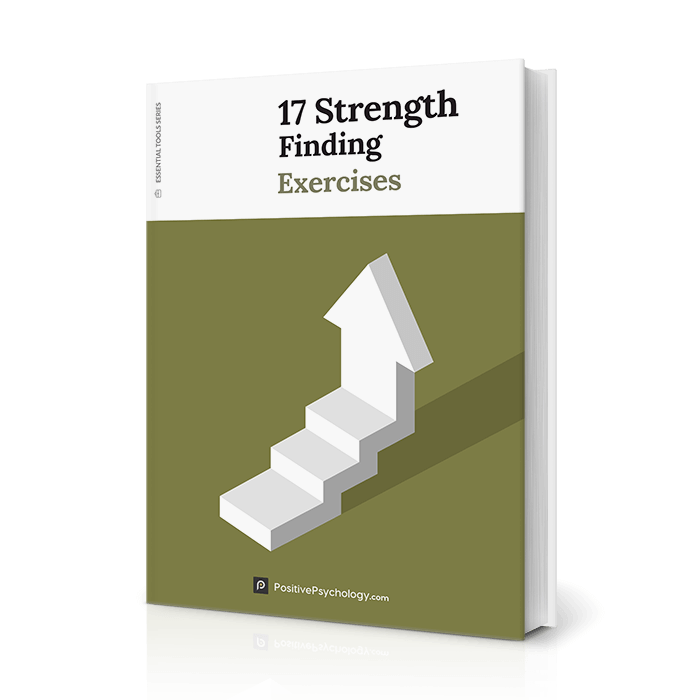

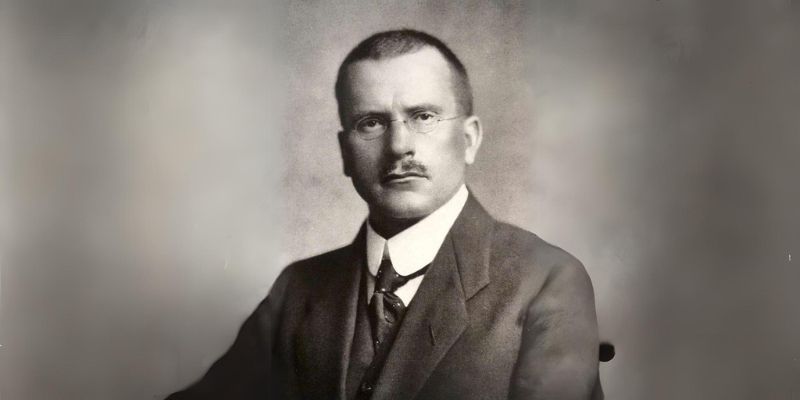


What our readers think
Humility presumes that somethings are more important than self. This is absurd…nothing at all in the Universe is more important than self. Without self, there is no individual autonomy…that is…a so called humble person is attacking the core freedom implicit in the dignity and value of every individual person. Liberty, freedom and self directed human creativity is destroyed with the corrosive effects of the embrace of humility as a virtue.
I thought that this article was extremely insightful, well written, fair and balanced. I really believe that it is quite accurate. I enjoyed it very much. Interesting when you applied it to the day and age that we are living in. Regards, Laura
Medieval knights went to chapel before each crusade and epic battle. The Pope is required to spend time in ‘The Room of Tears’ before his 1st ever speech from the balcony. Why? Humility is a powerful natural asset that can always use some refining or a refresher course. Tell me about it. Before any epic journey or life change a little reacquaintance with humility is always a good idea. It lets you regain perspective. I intend to quit smoking after a 40-pack/year habit. That’s why I spend a lot of time scrounging around for cigarette butts to smoke instead of actually buying a pack. It’s gross, disgusting, and smelly, which was exactly what I needed to stay on track. Hopefully it will work.
Your claim about Christian humility is grossly unfair and unacceptable. It has nothing to do with shame or self~abnegation. Rejection of sin is a very healthy aspect of humility
I have been blessed by this articel so much that I thank God, especially from Wendy above. I pray that God enables this virtue in me and my family.
Thank you very much, wish you all the best !
Noria .